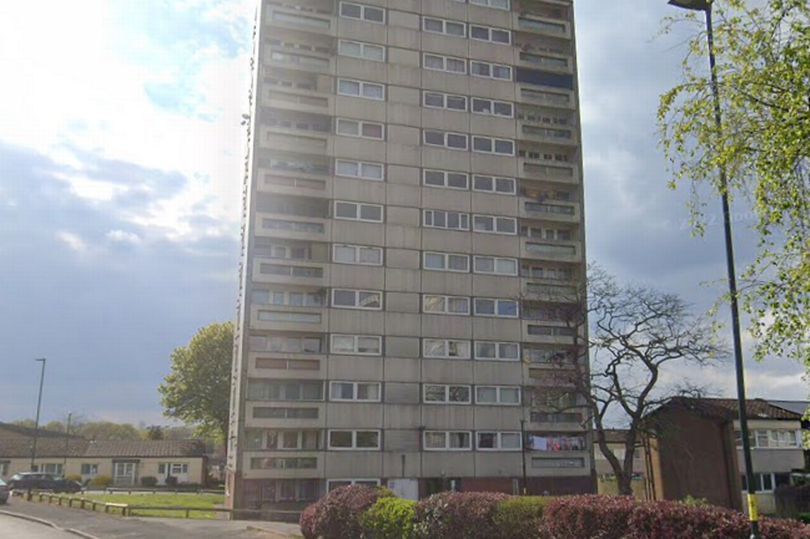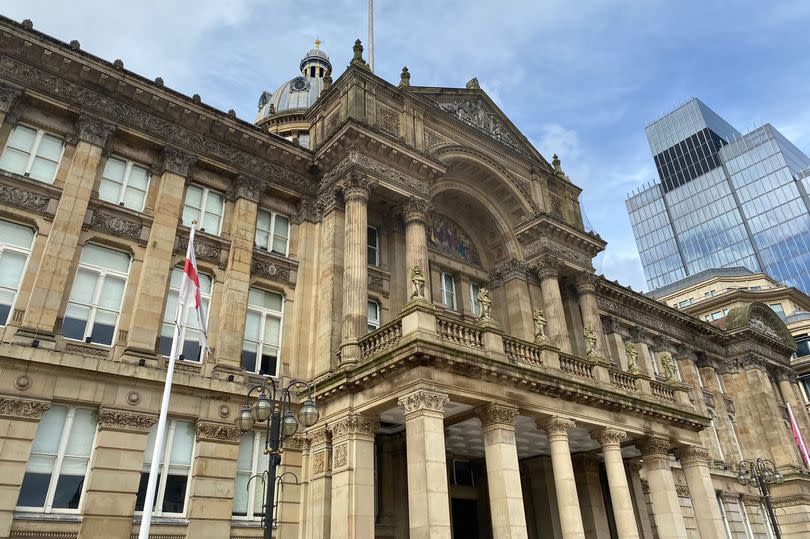Birmingham CCTV tower block pilot to go ahead as council accused of ‘shameful behaviour’

Birmingham City Council has been accused of “shameful behaviour” over plans to introduce new CCTV cameras at city tower blocks. The council has said it recently committed to exploring how CCTV could be reintroduced into council high and low-rise blocks and neighbourhoods to help residents to feel safer in their homes.
It was therefore seeking approval on Tuesday, June 25, to implement a 12-month CCTV pilot, which could then provide evidence to support a possible wider implementation across the city. A recently-published report said several “hotspots”, where a particular block or estate is experiencing significant crime and antisocial behaviour (ASB), had been identified to trial the potential use of the new cameras.
The council previously decided to decommission all CCTV back in 2014. Robert Alden, leader of the Conservatives at the council, said he welcomed the re-introduction of CCTV but argued residents had been left to suffer after they were decommissioned.
READ MORE: Full list of Birmingham tower blocks where CCTV pilot could be introduced
“It can range from low level anti-social behaviour to [...] people using the lifts as a toilet to very serious assaults,” he continued. He went on to question why certain tower blocks had not been included in the pilot, saying he knew of one which had experienced multiple assaults.
“What does concern me is the process it’s gone through for the selection of these blocks,” he said. “We’re told that a block that’s only had one case of ASB in three years is one of the worst blocks in the city and should have CCTV.”
“This is shameful behaviour for this council,” he continued. “There should be a proper public assessment published which shows which are the blocks in the city that actually need CCTV the most". Roger Harmer, leader of the Liberal Democrats, echoed those comments and said he was ‘staggered’ by some of the tower blocks which had not been included in the pilot.
“I would like to see what the rationale is for the blocks that were chosen and not chosen,” he said.
'Data driven'
Guy Chaundy, assistant director at Housing Strategy and Enabling, responded to such concerns during the meeting. He said the evidence used to select the tower blocks for the pilot was “very much data driven” and included crime data, what tenants were saying and data from the council’s internal systems around ASB reports.
“I do take point around assurance is needed that is robust and accurate data,” he continued. “There’s going to be other blocks that have issues - well, most of our blocks have some degree of issues around anti-social behaviour.
“This is a pilot and we need, through the course of the 12 months, to start looking at our long-term strategies around roll-out for CCTV". Cllr Nicky Brennan, cabinet member for community safety, said: “Everyone in the city deserves to feel safe in their homes.
“I will pick up with the community safety team, as well as our local policing teams, about what kind of strategies we can do on a city-wide basis as well to feed into this and help residents feel safe in their home". The City Council’s cabinet ultimately approved the implementation of CCTV during a 12-month pilot across specific hot-spot areas.

Potential future service charge
The use of CCTV beyond the pilot could involve the introduction of a service charge in the future. In the report, the council acknowledged the difficulties many tenants and leaseholders are facing such as the cost-of-living crisis.
“It is proposed that for the initial 12-month implementation period and a further three-month evaluation period following completion of the pilot programme, this cost is absorbed by the council via the HRA,” it continued. “Any decision to proceed with the CCTV programme [after the pilot] and the introduction of a service charge to cover the ongoing implementation costs will be considered as part of the wider service charge review.”
“The number of tenancies affected by the pilot programme (assuming full occupation of each block) is 1,168,” the report added. “The indicative cost of the implementation per unit would therefore be £102.74 per annum per unit, or £1.97 per week levied via the service charge.
"This cost would be applicable to both tenants and leaseholders.”
Why the council previously decommissioned CCTV
The council’s decision to previously decommission all CCTV around a decade ago was taken based on the financial pressures at the time. The report said: “This decision was in part informed by the potential increase in service charges needed to fund the upgrade of the CCTV system, at a time when the switch to Universal Credit meant that many tenants were coping with budgeting their income to meet their outgoings.”
It continued: “At the time of the decision to decommission in 2014, the projected costs to upgrade the system were £13m (£18m at 2023 prices)". The decision was then taken to move from CCTV to a system of “enhanced remote night security and secure entry systems” to all high-rise blocks.
Keep up to date with all the latest politics news with our politics newsletter. You can sign up for free here to get stories delivered straight to your inbox to read at a time convenient to you.
See our top stories and avoid ads by downloading our app to your phone or tablet

 Yahoo News
Yahoo News 
